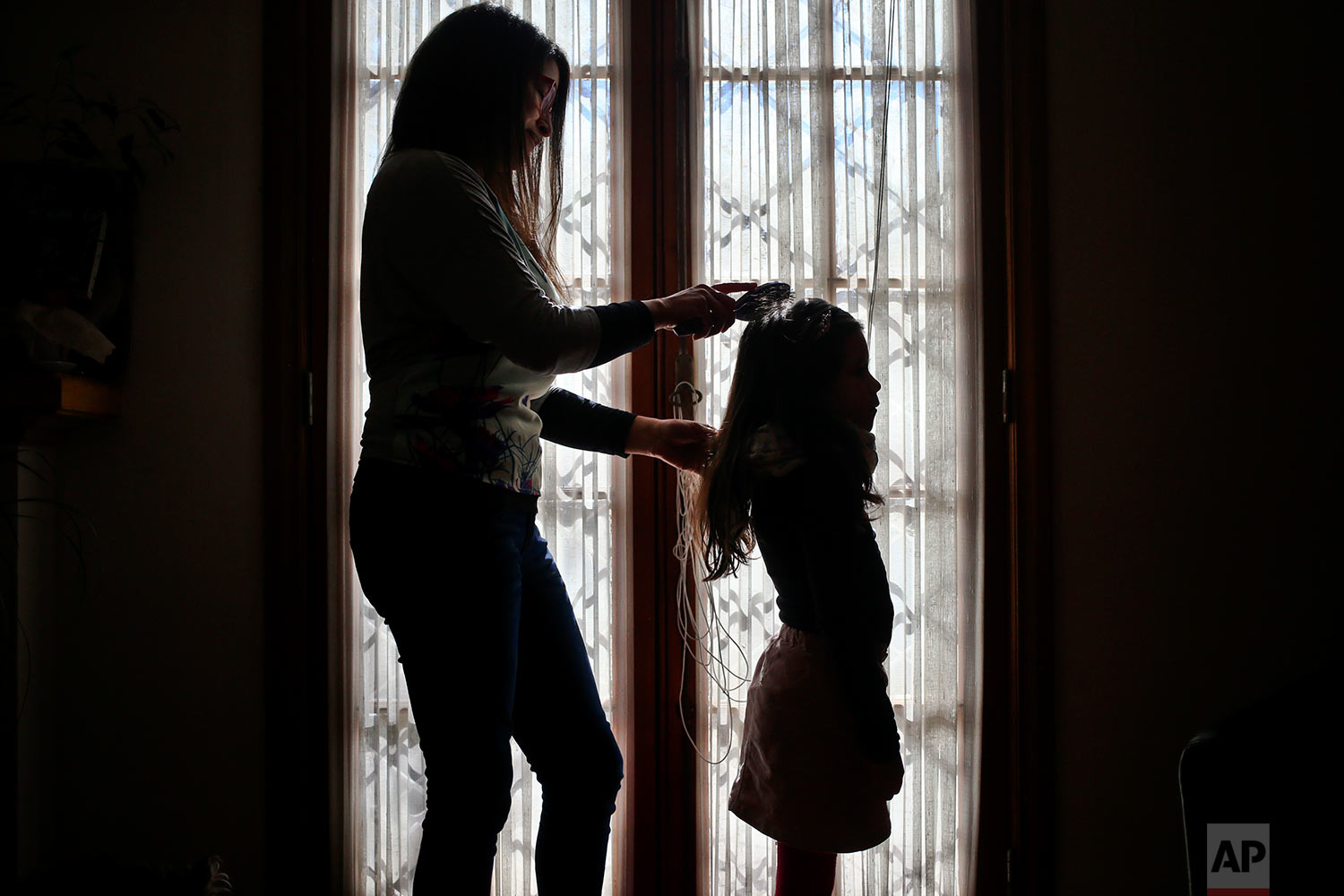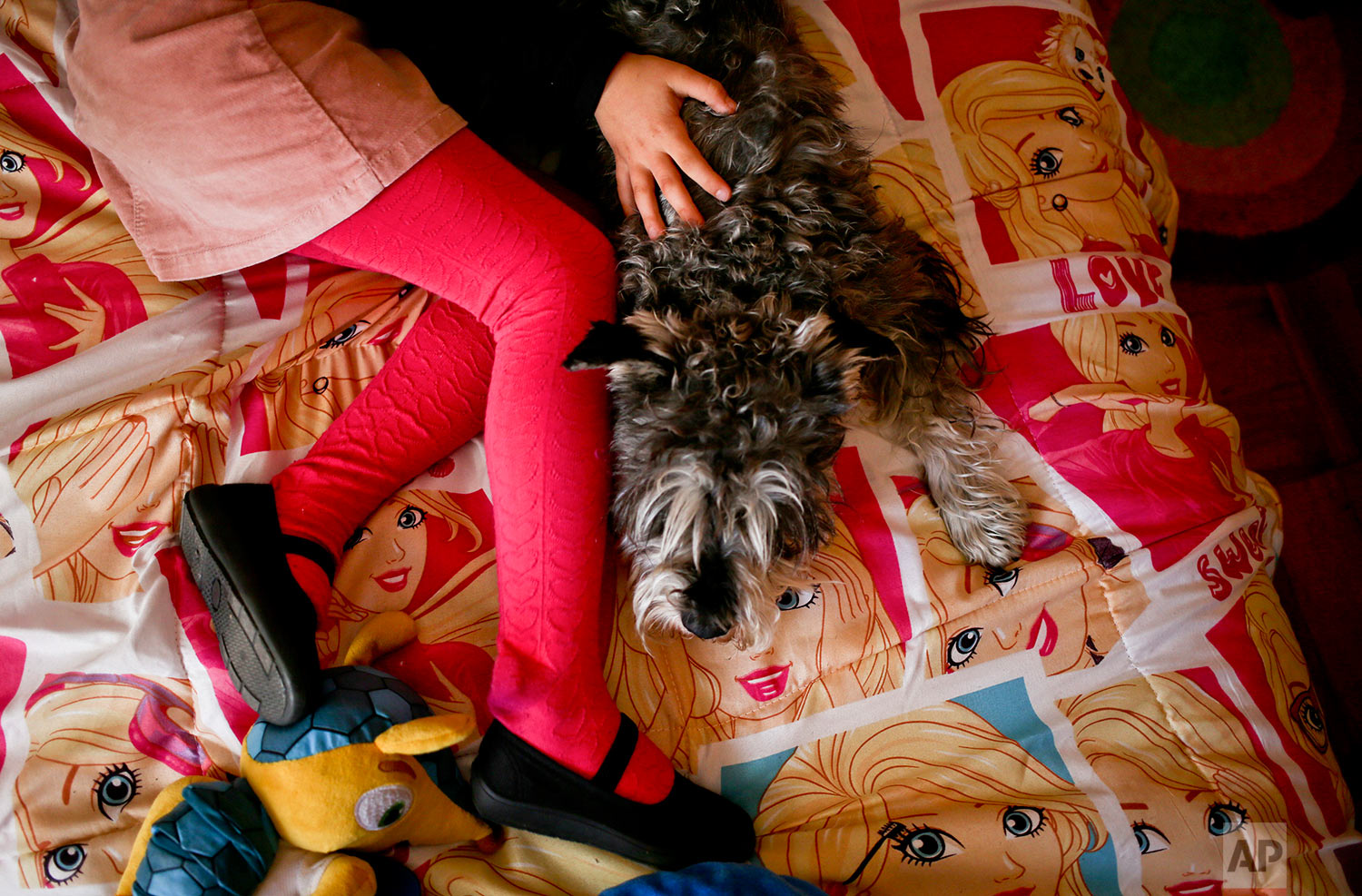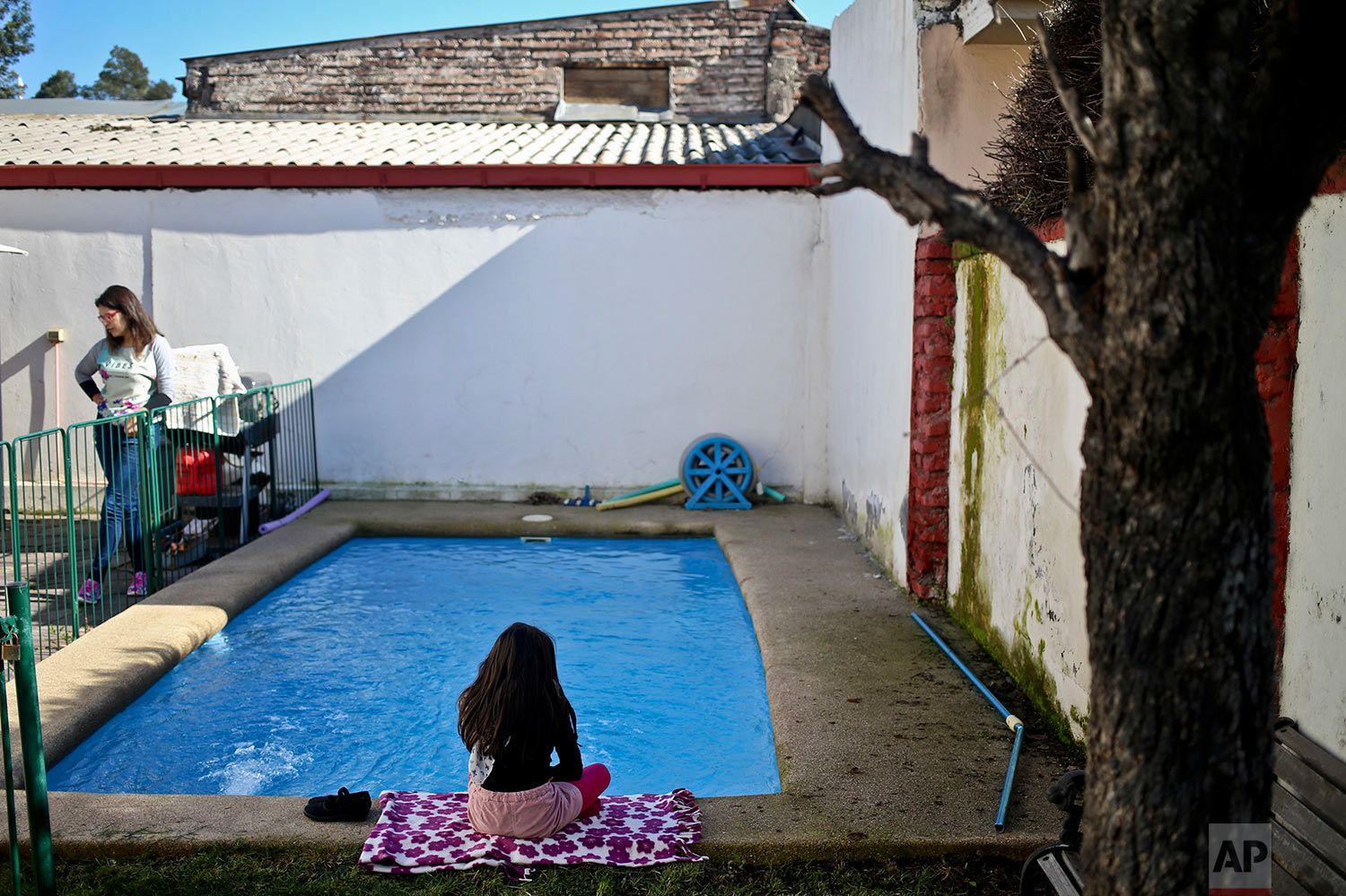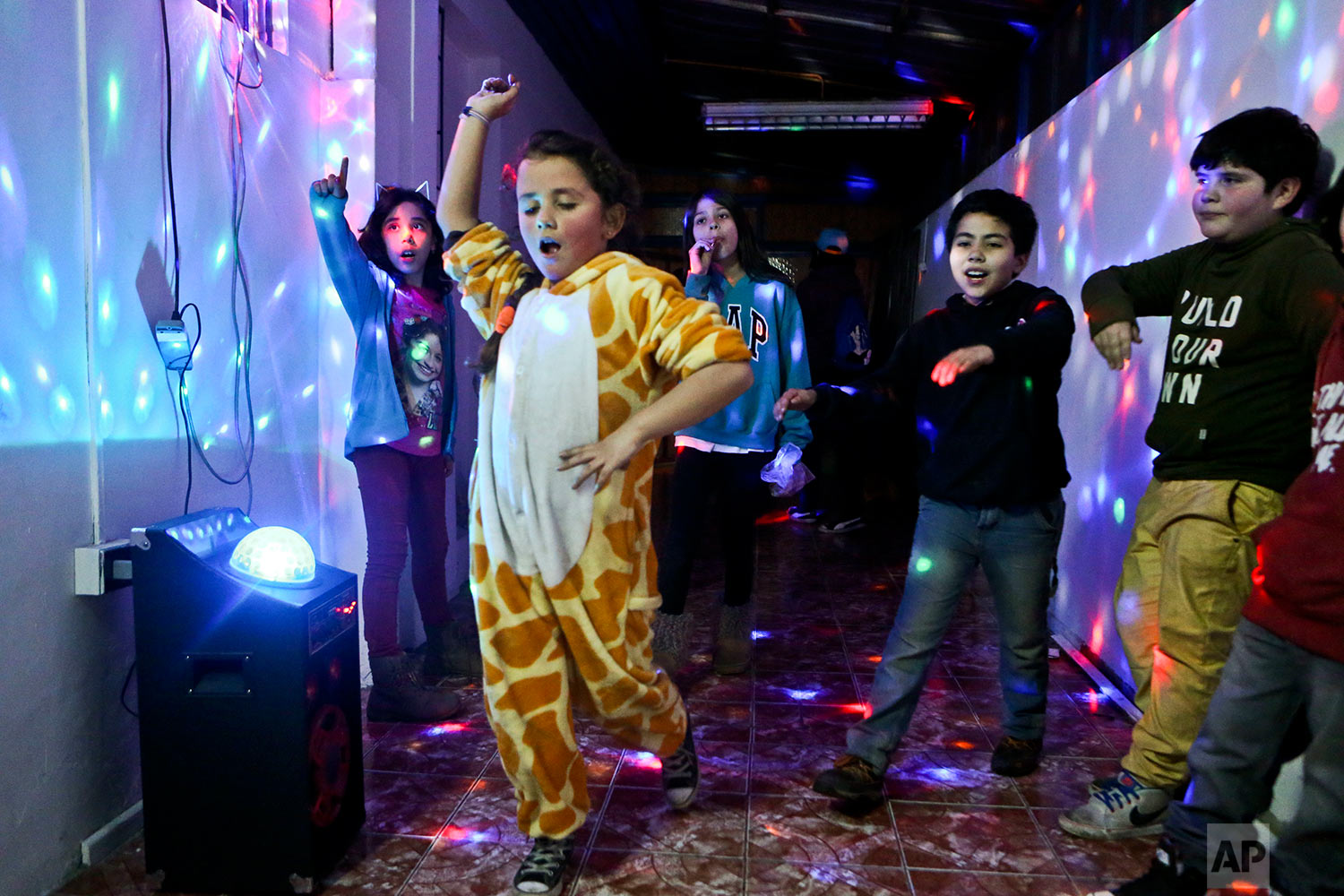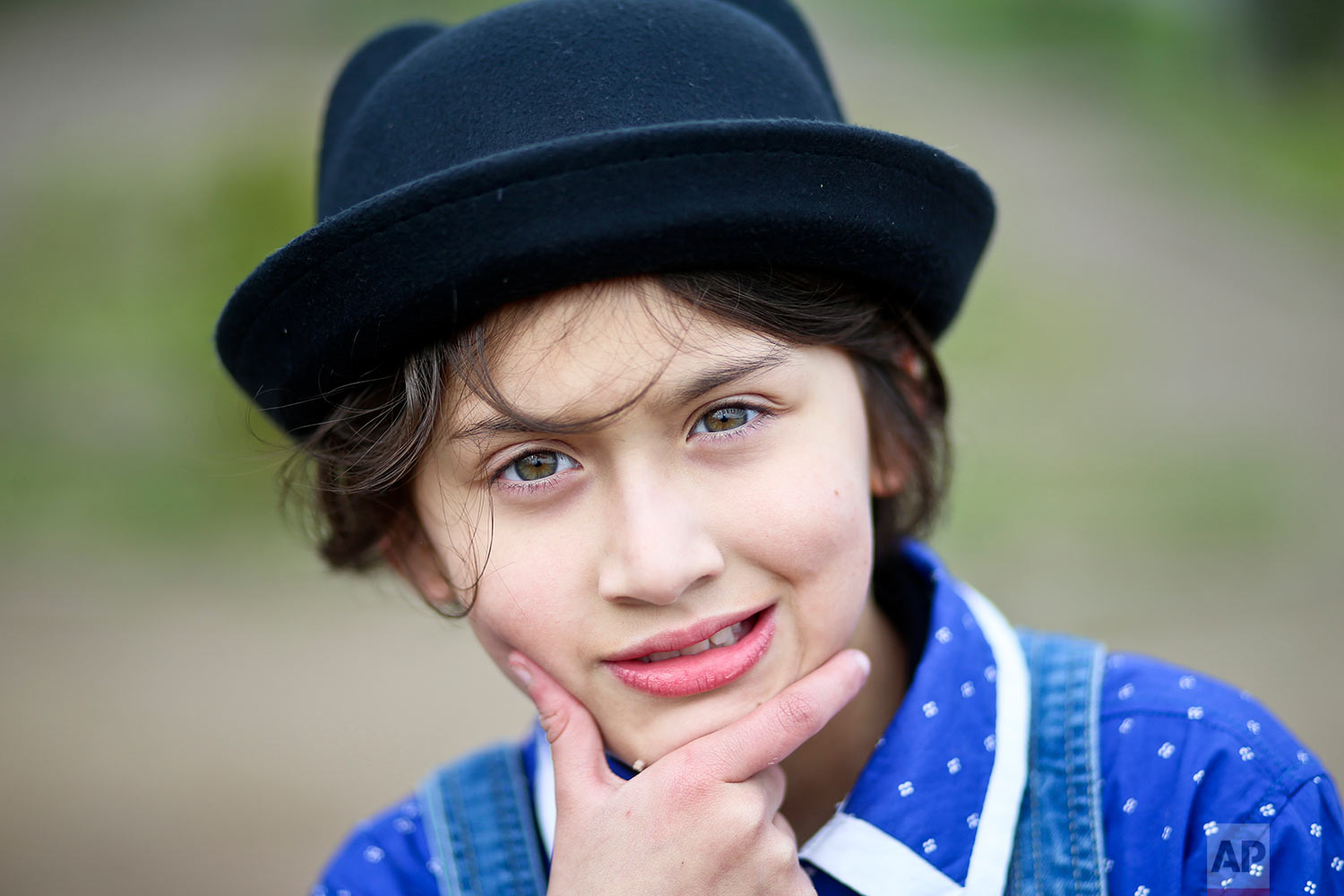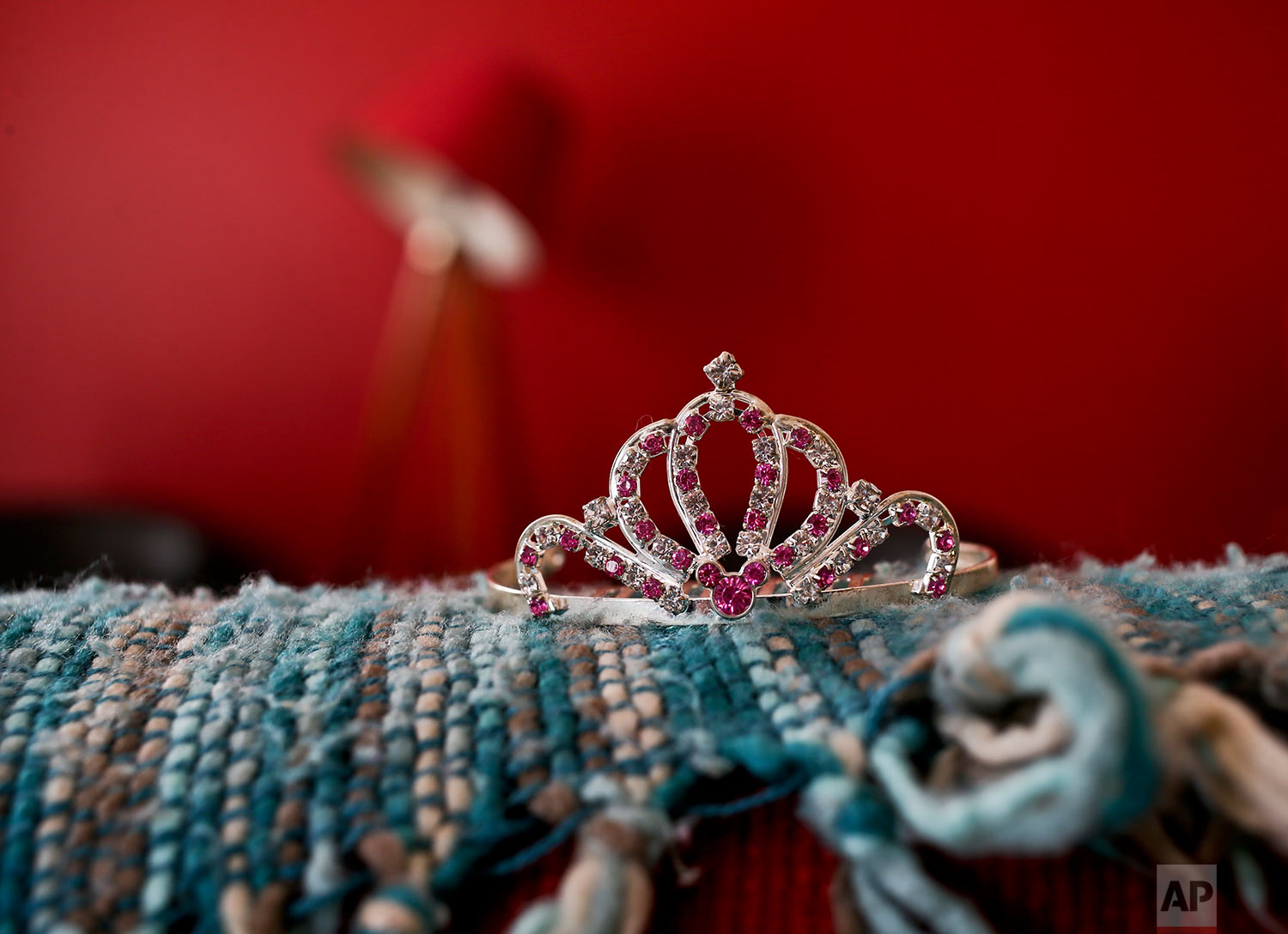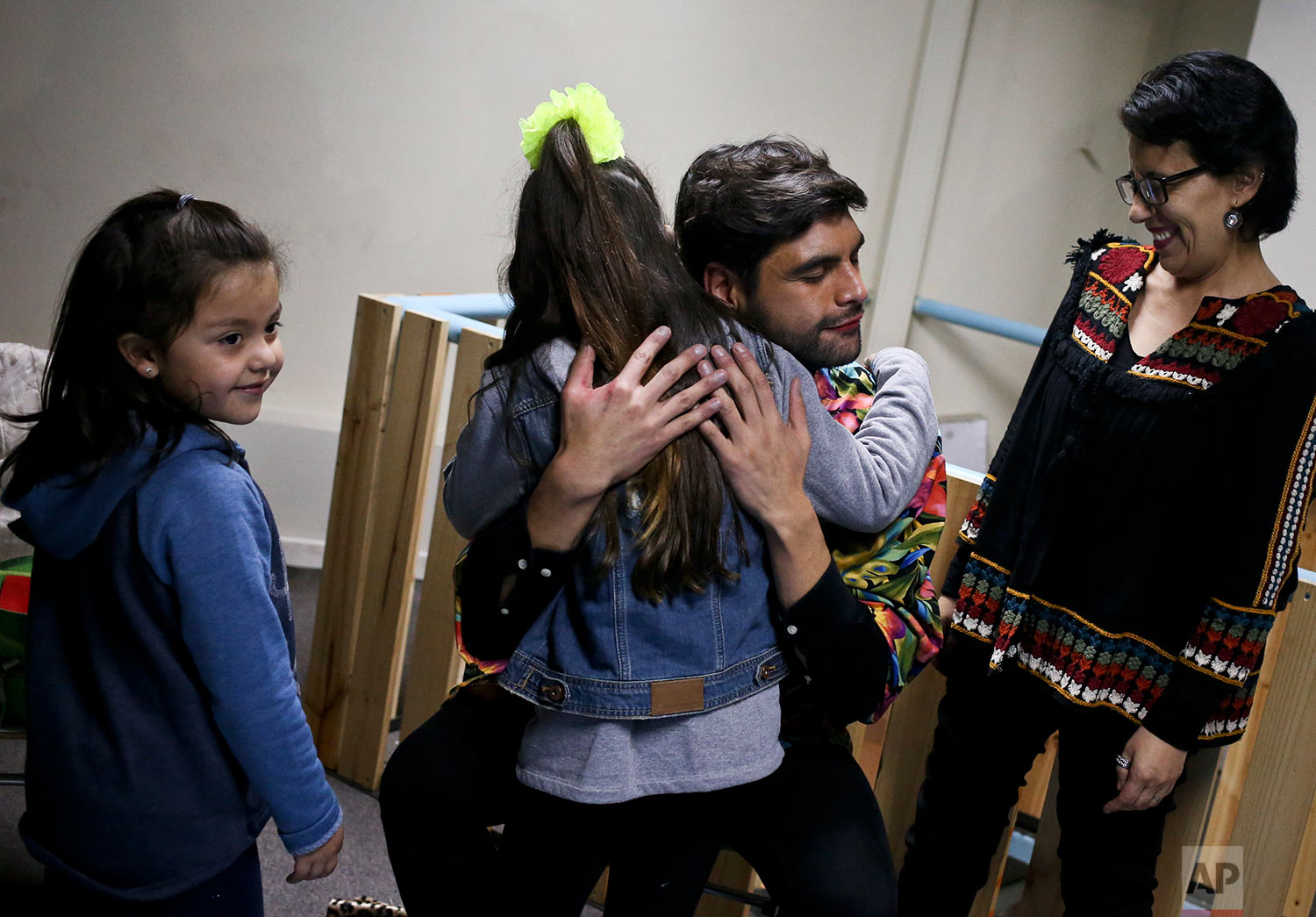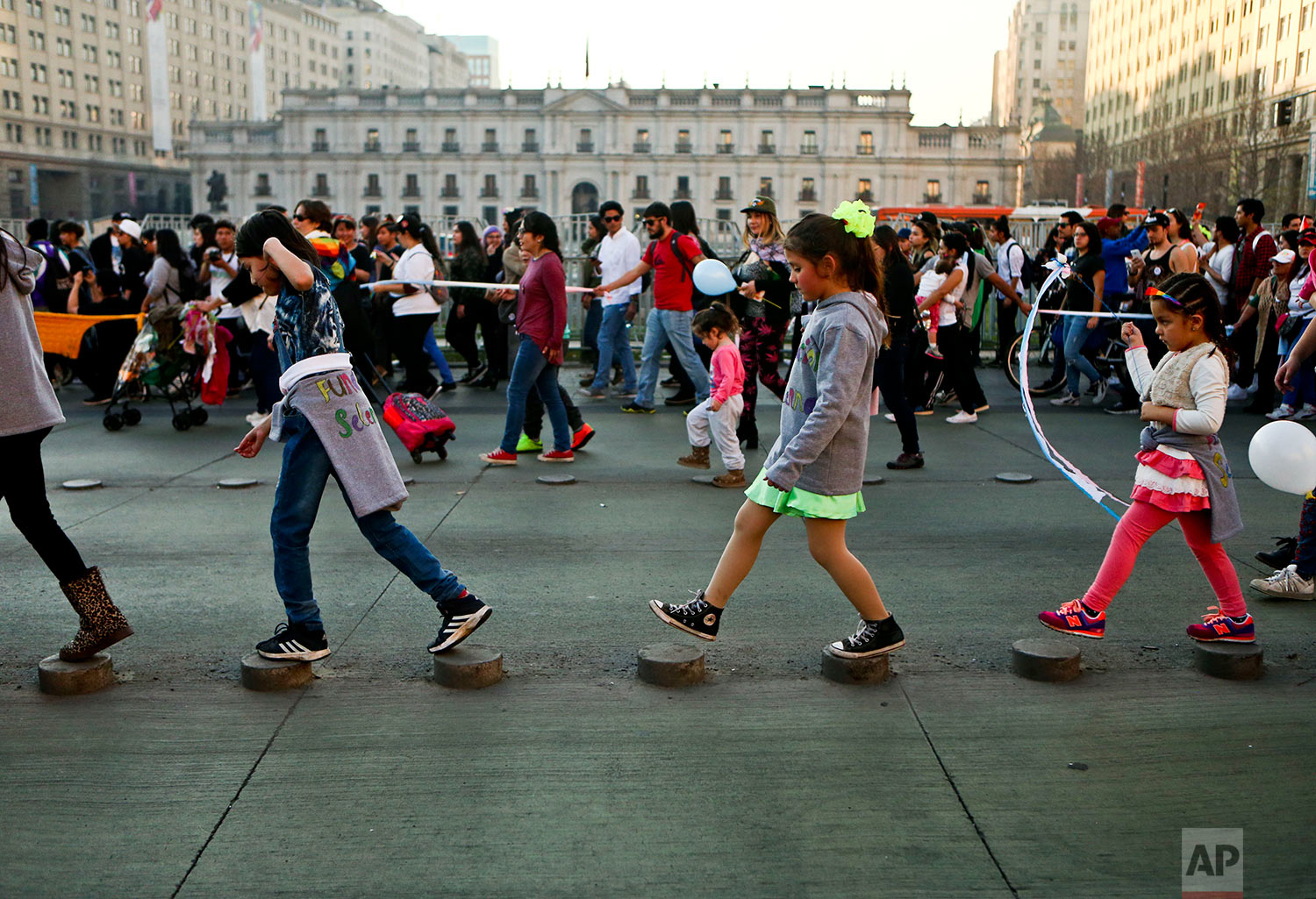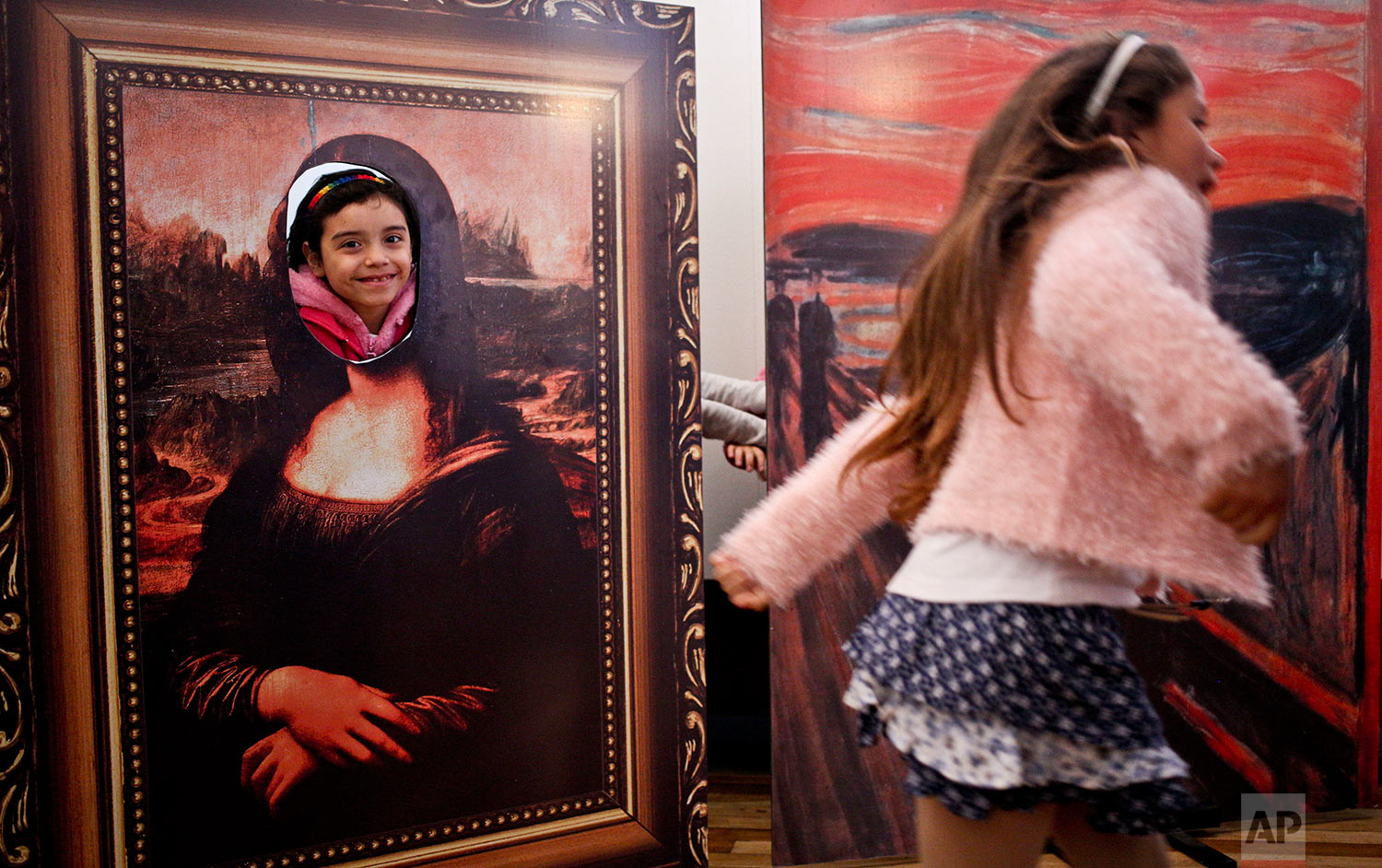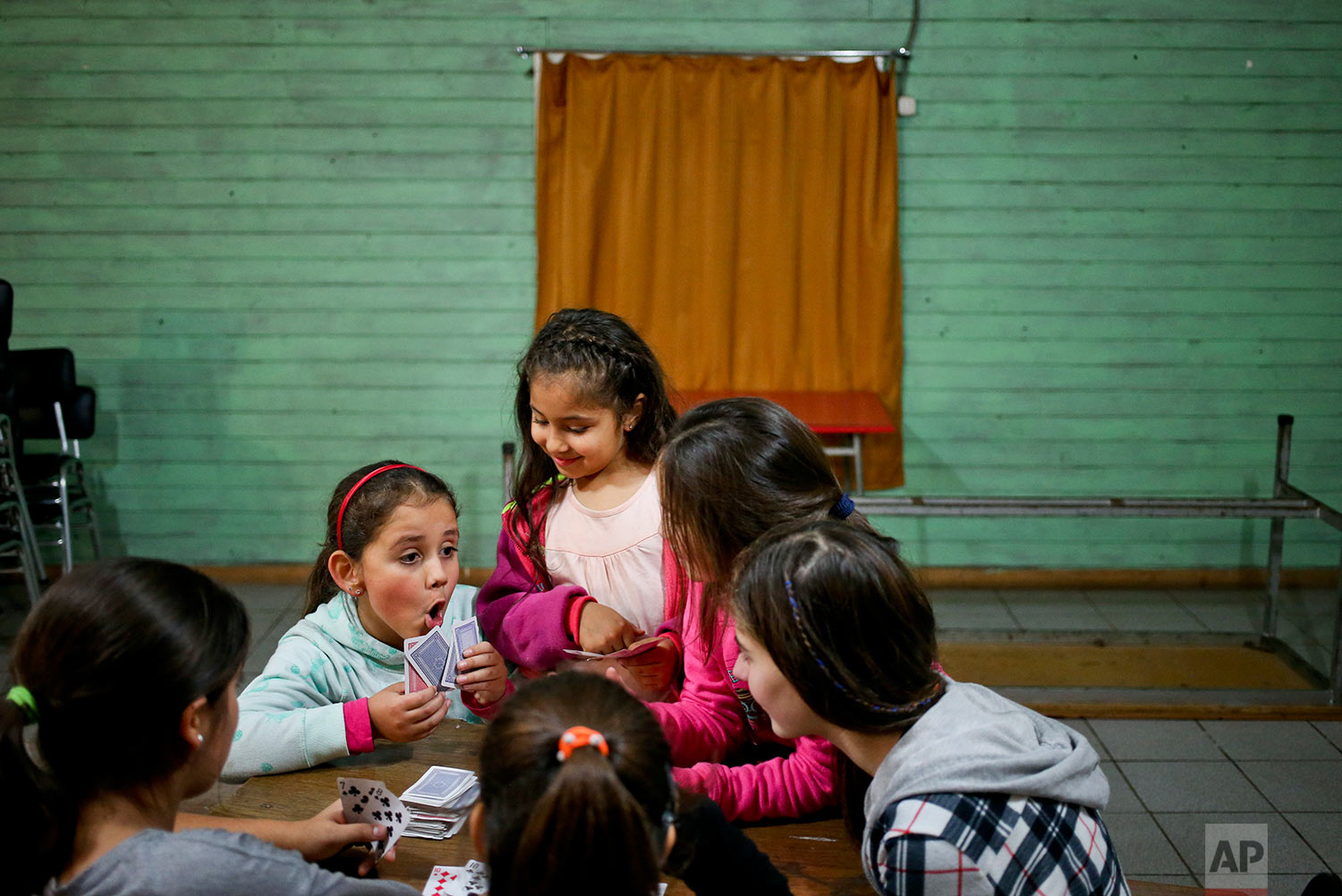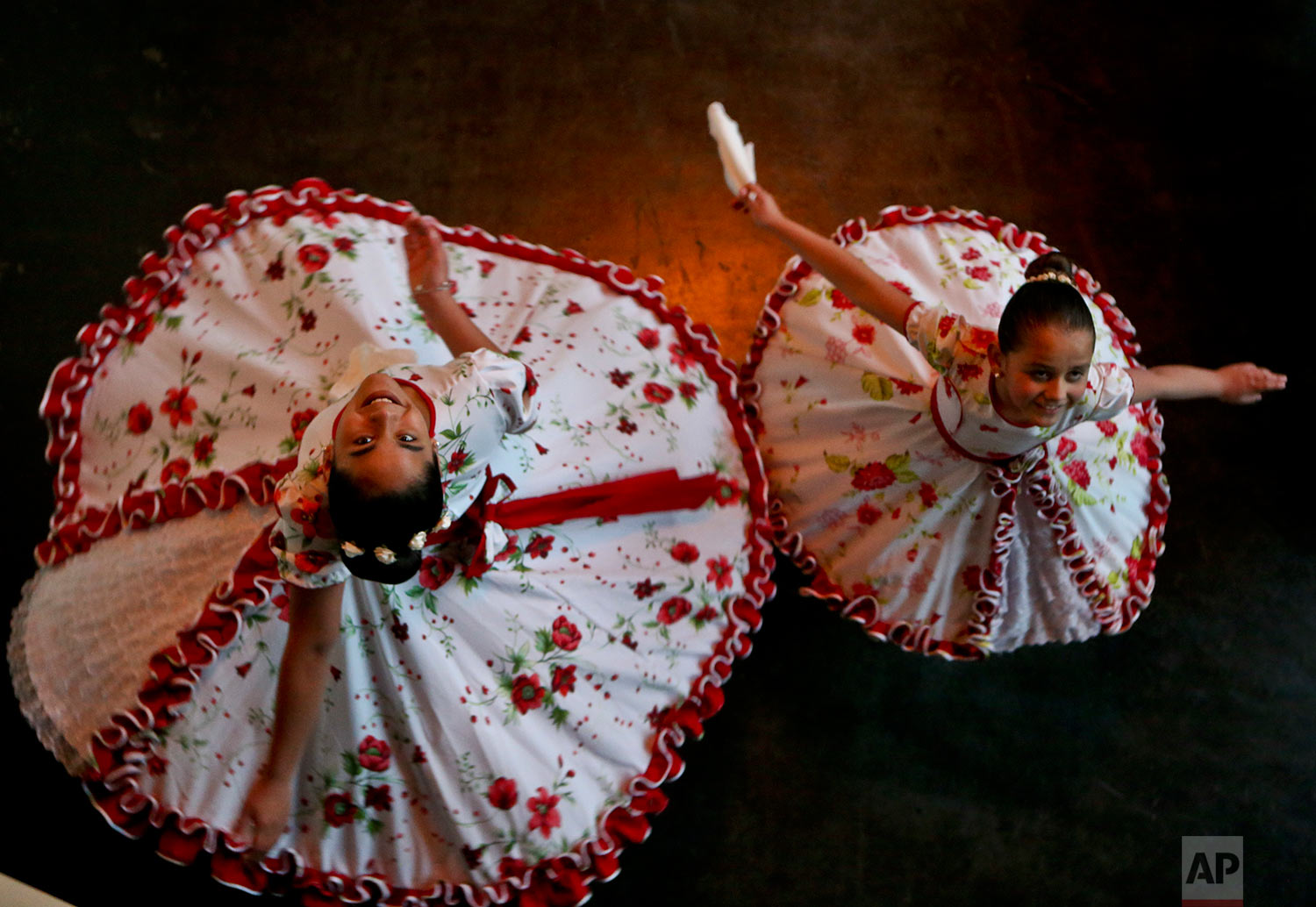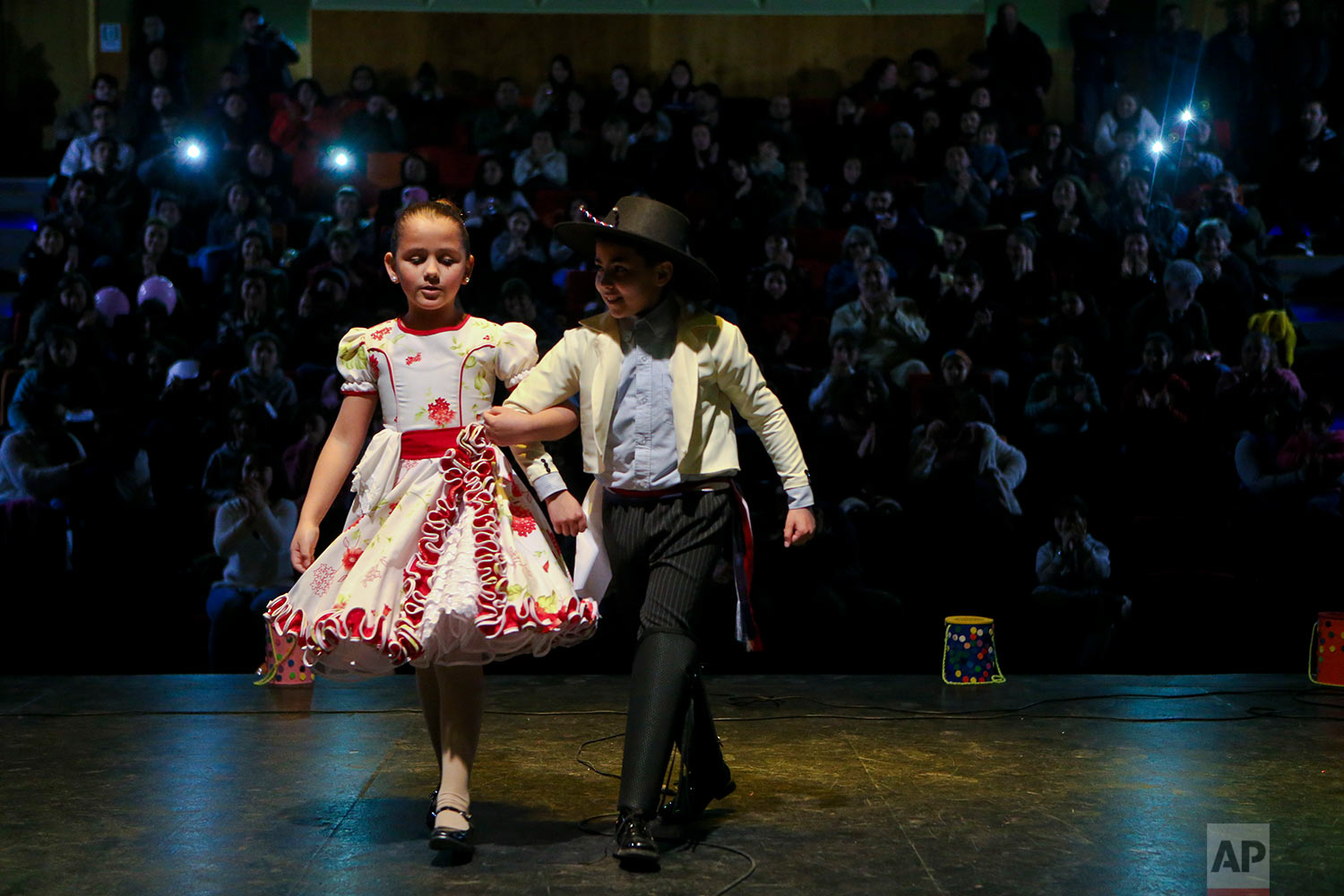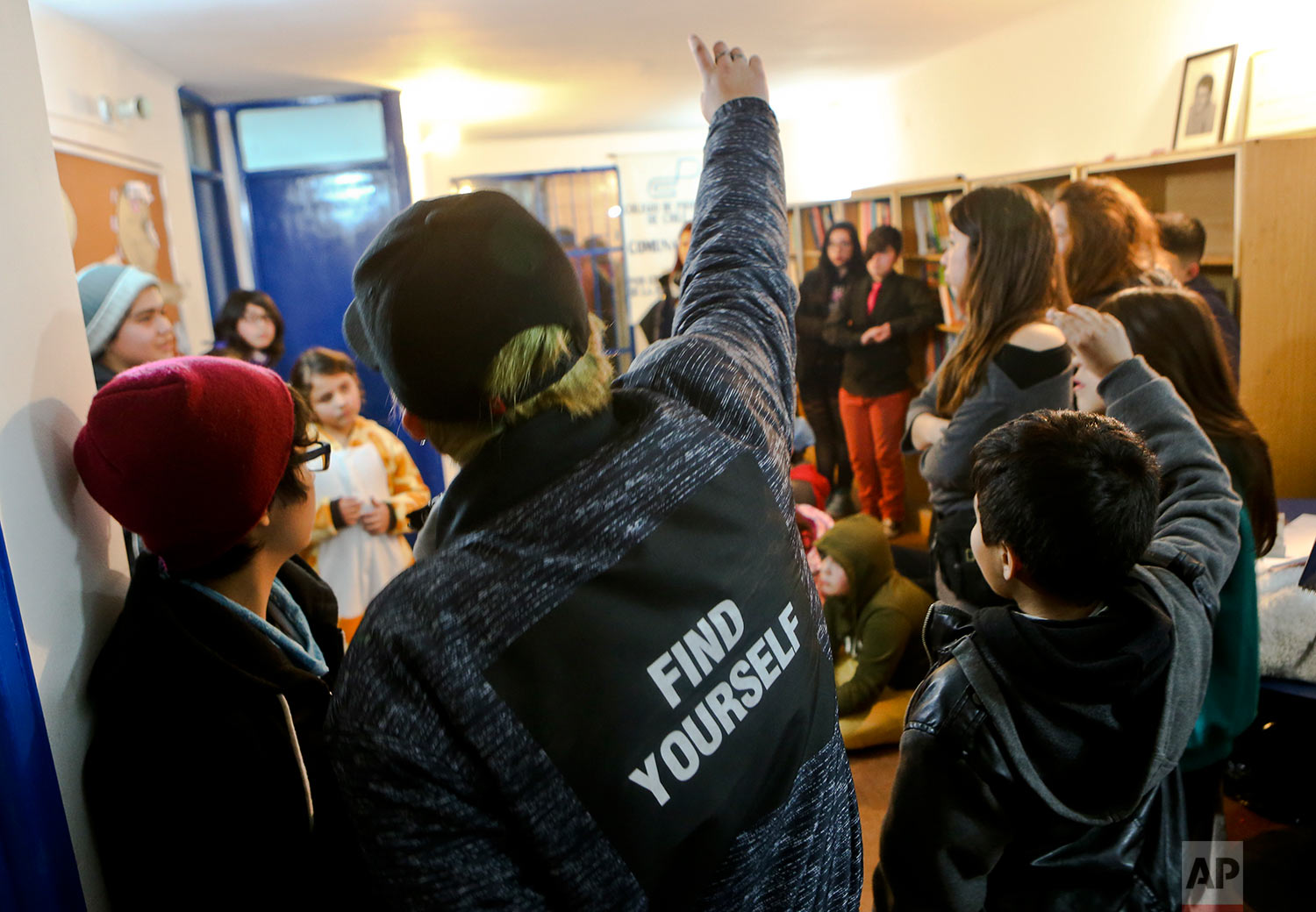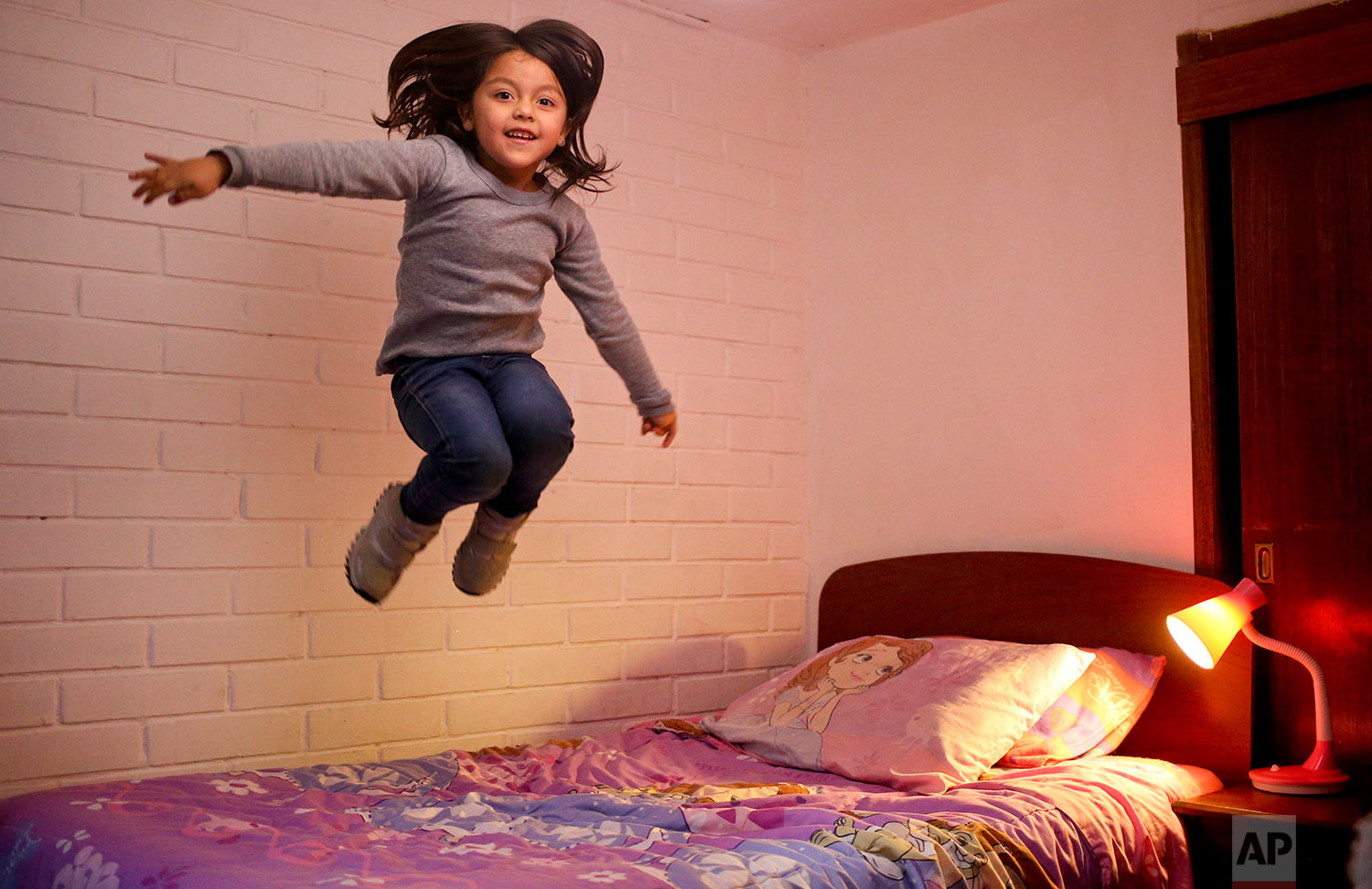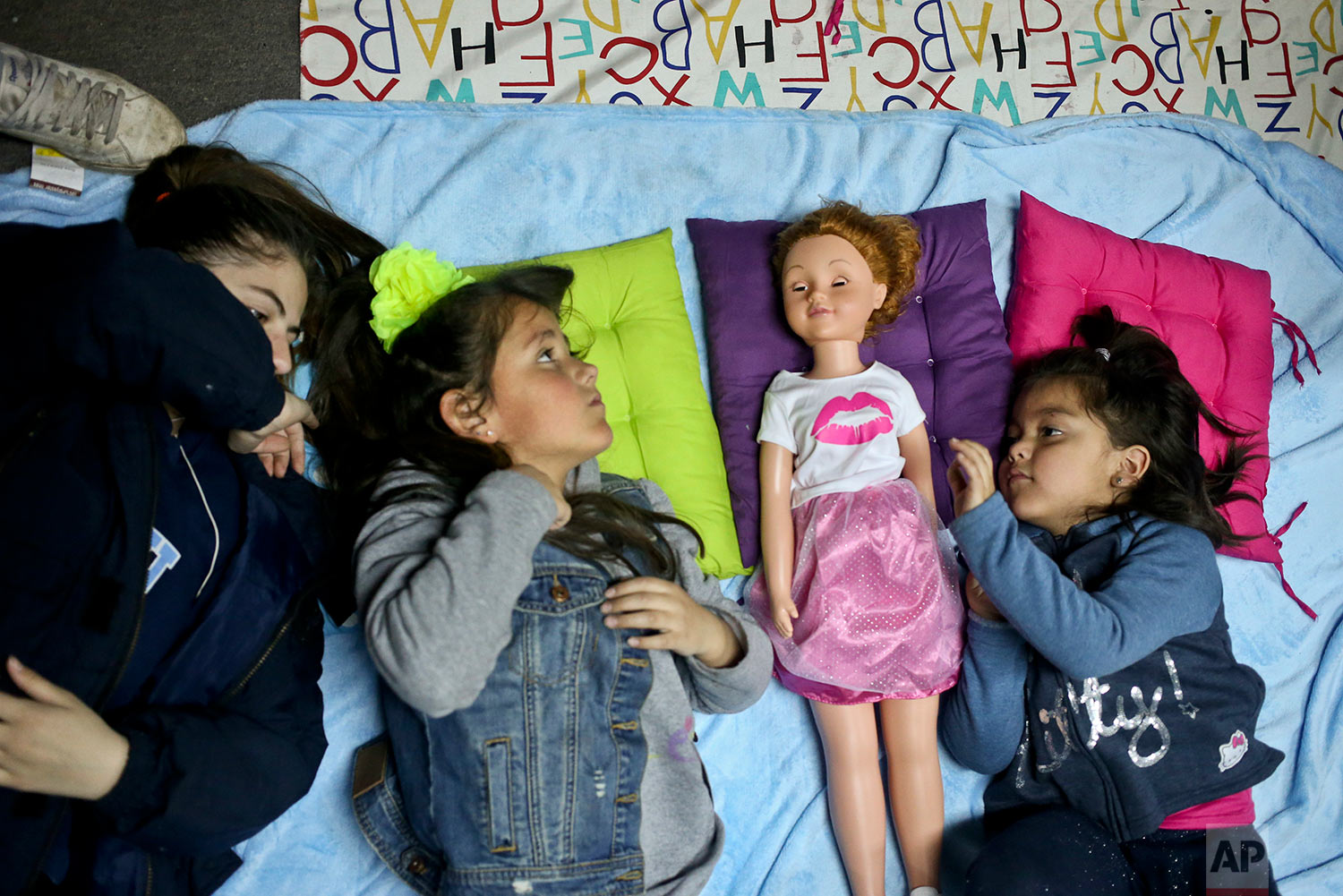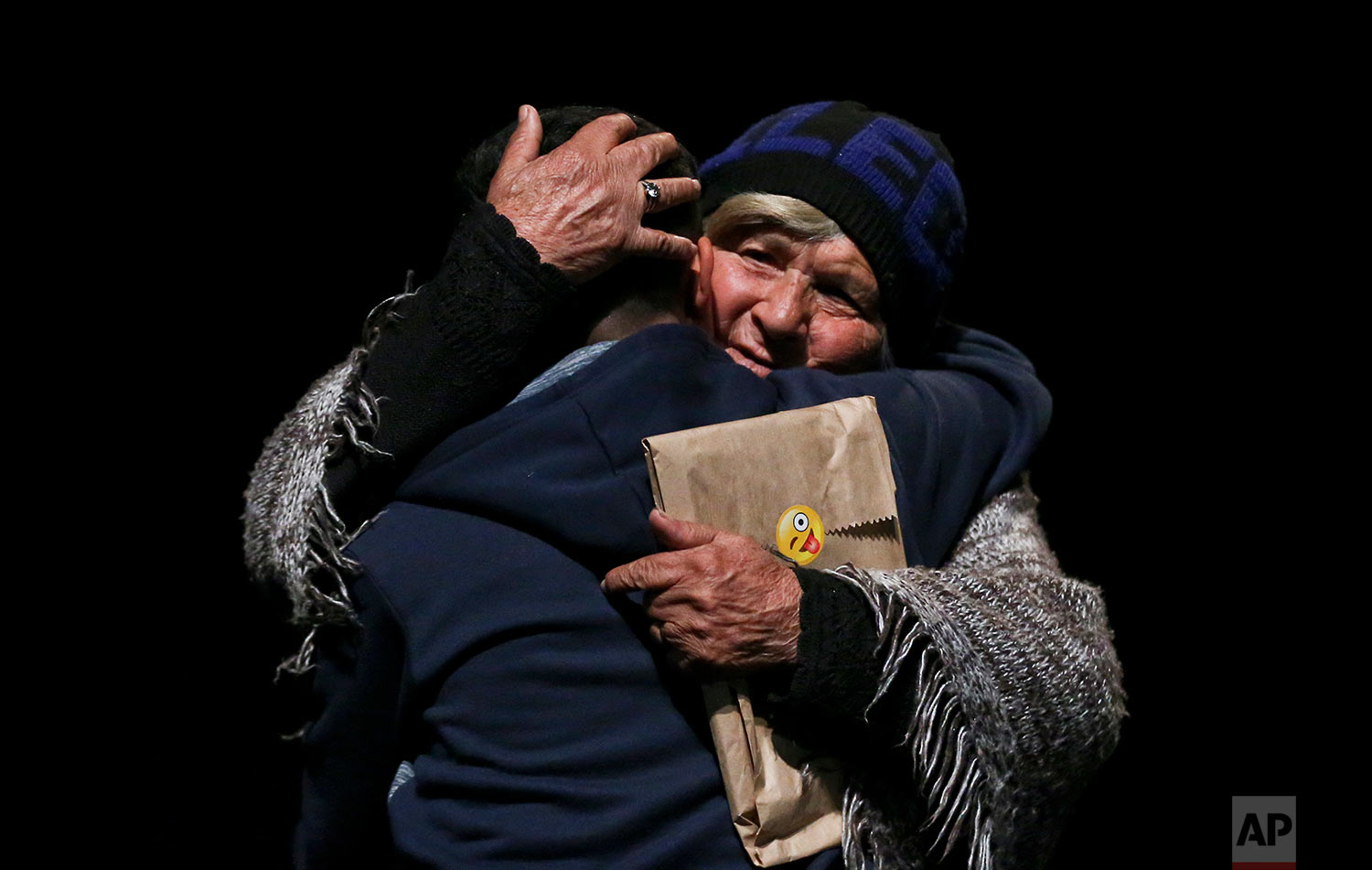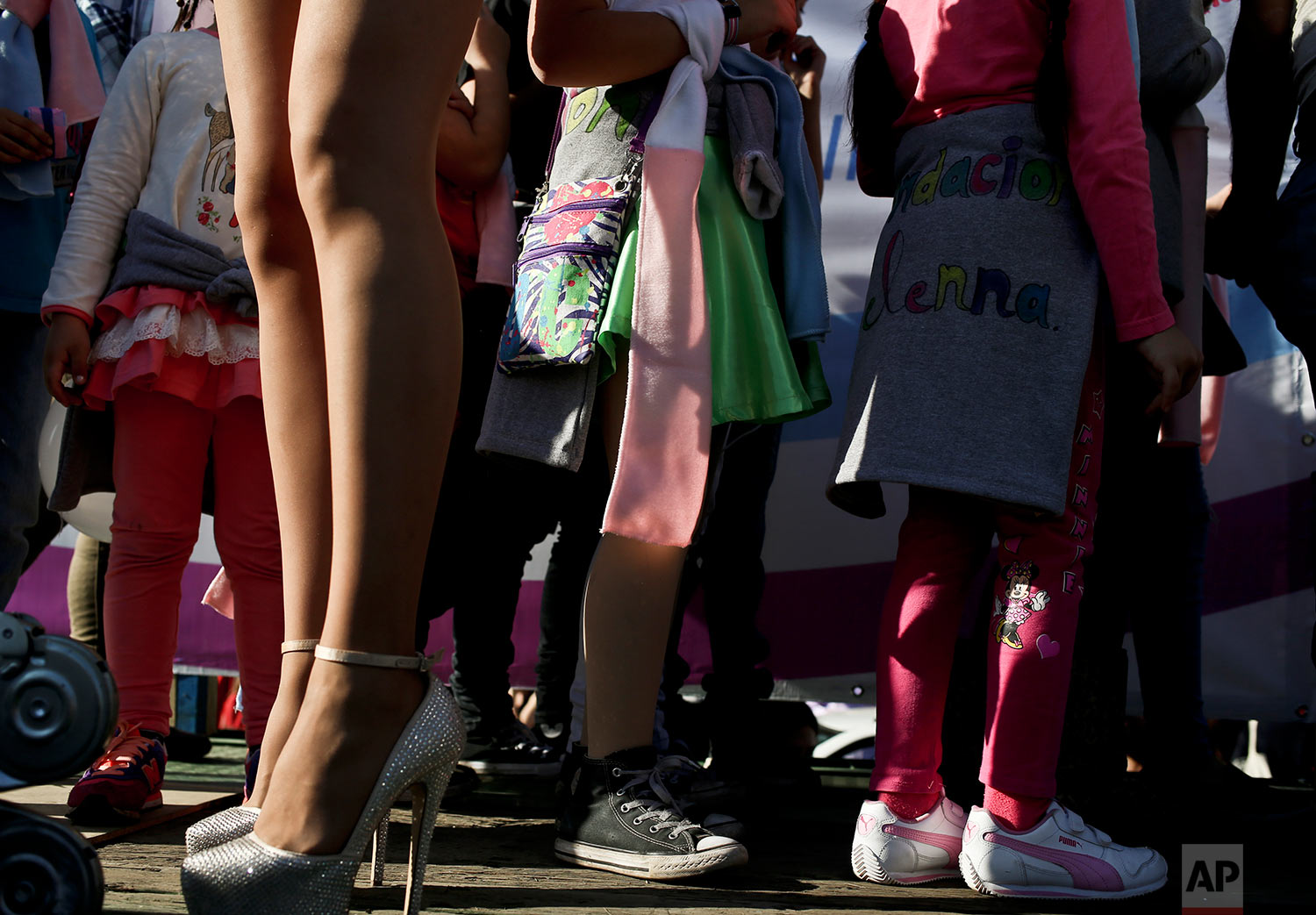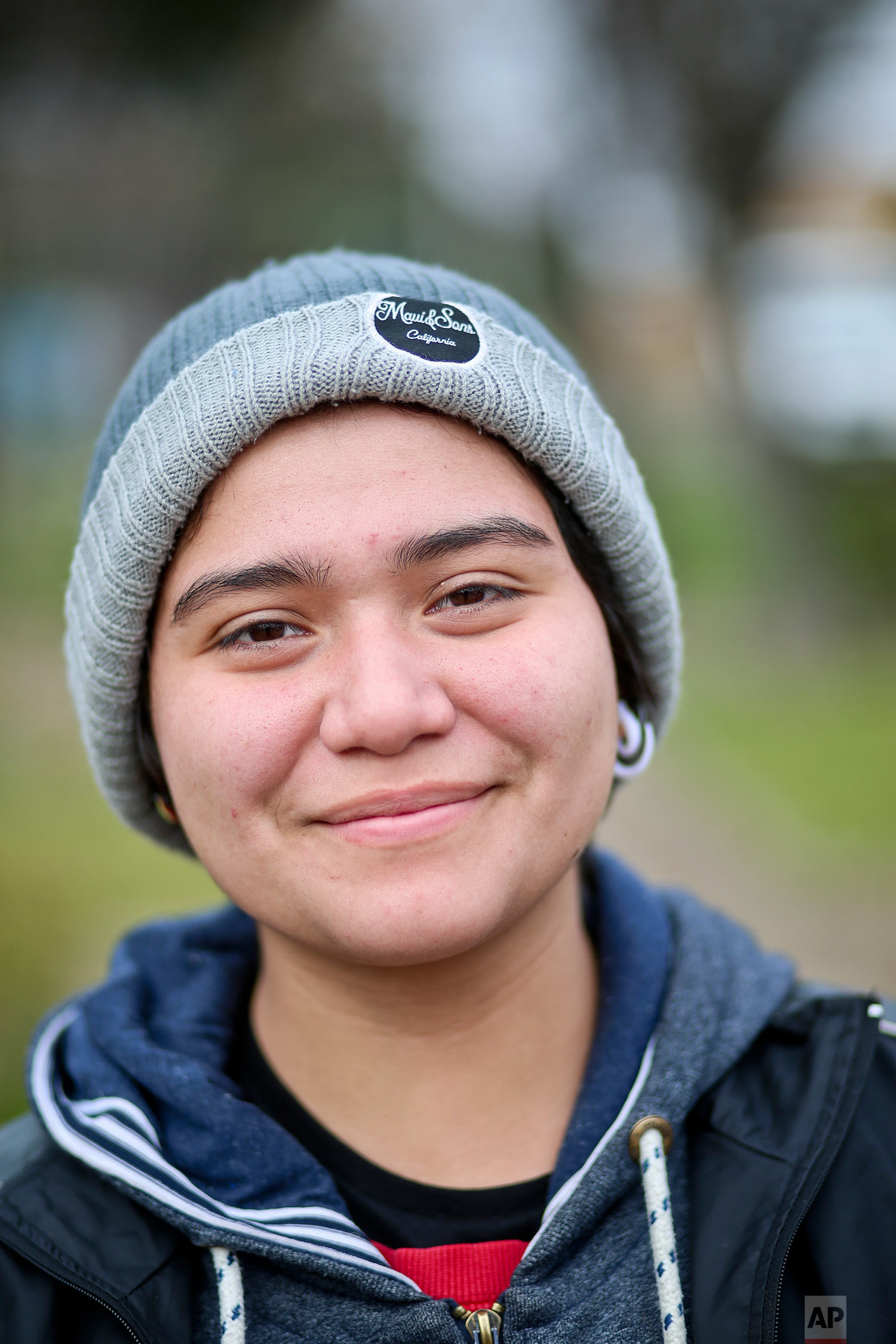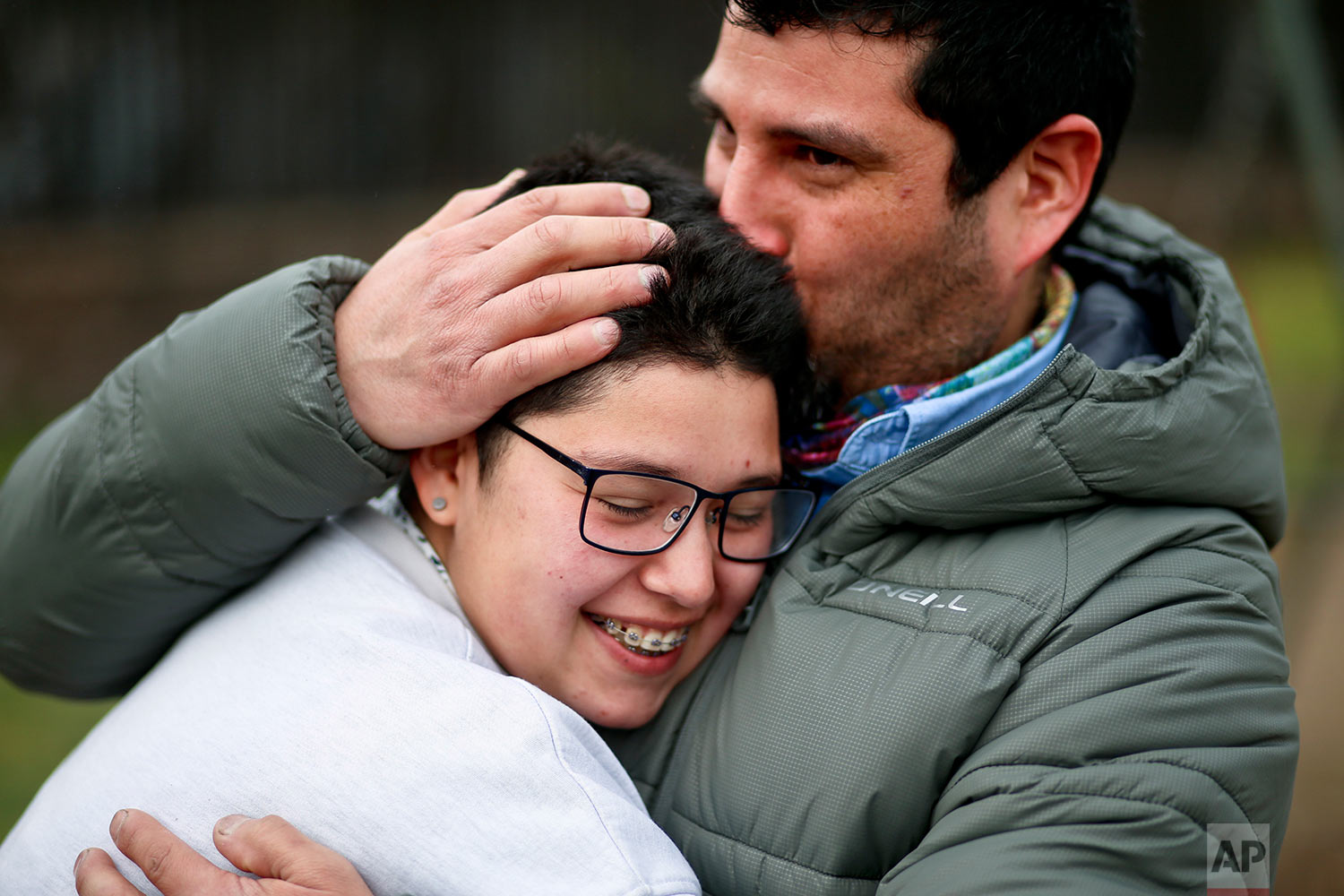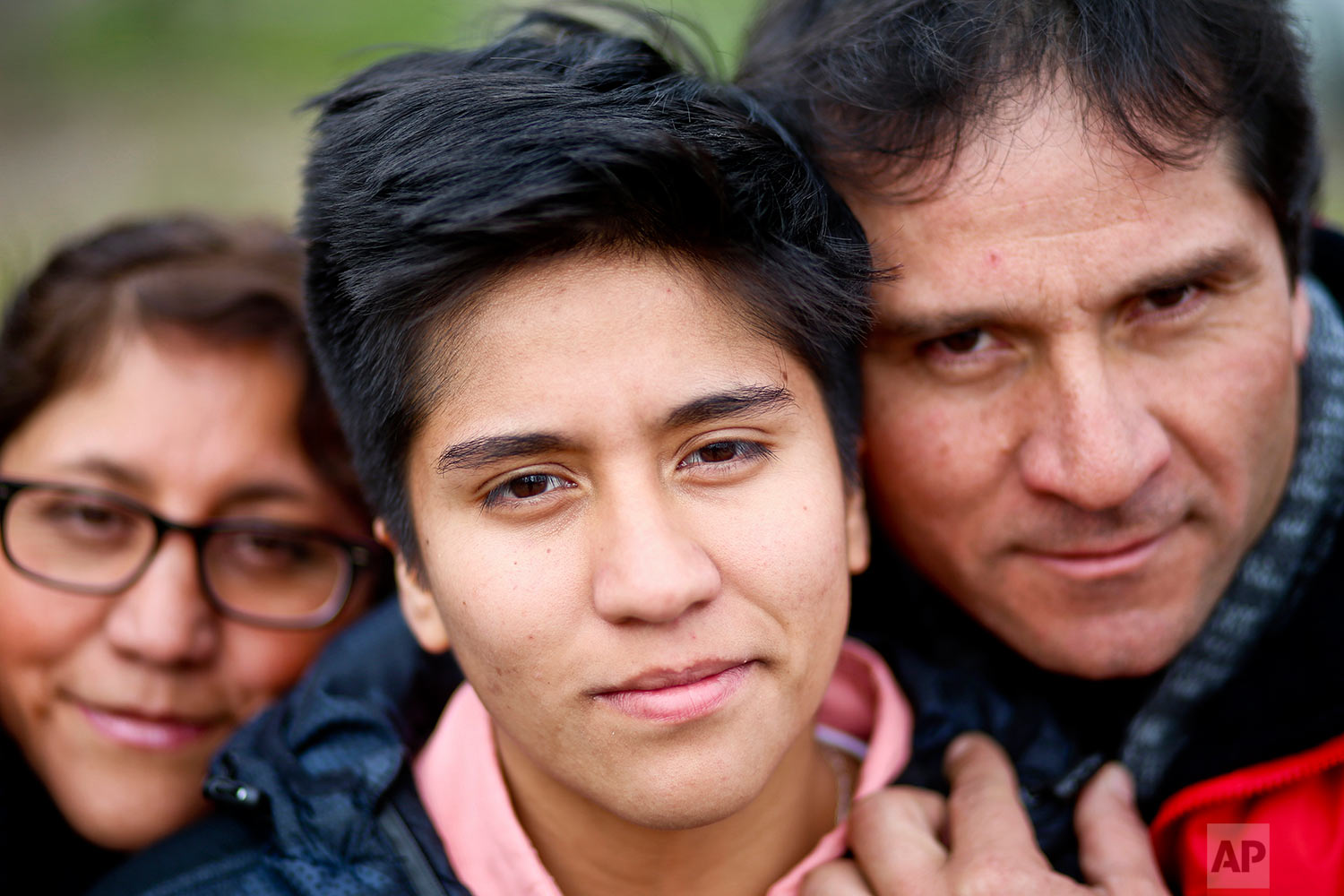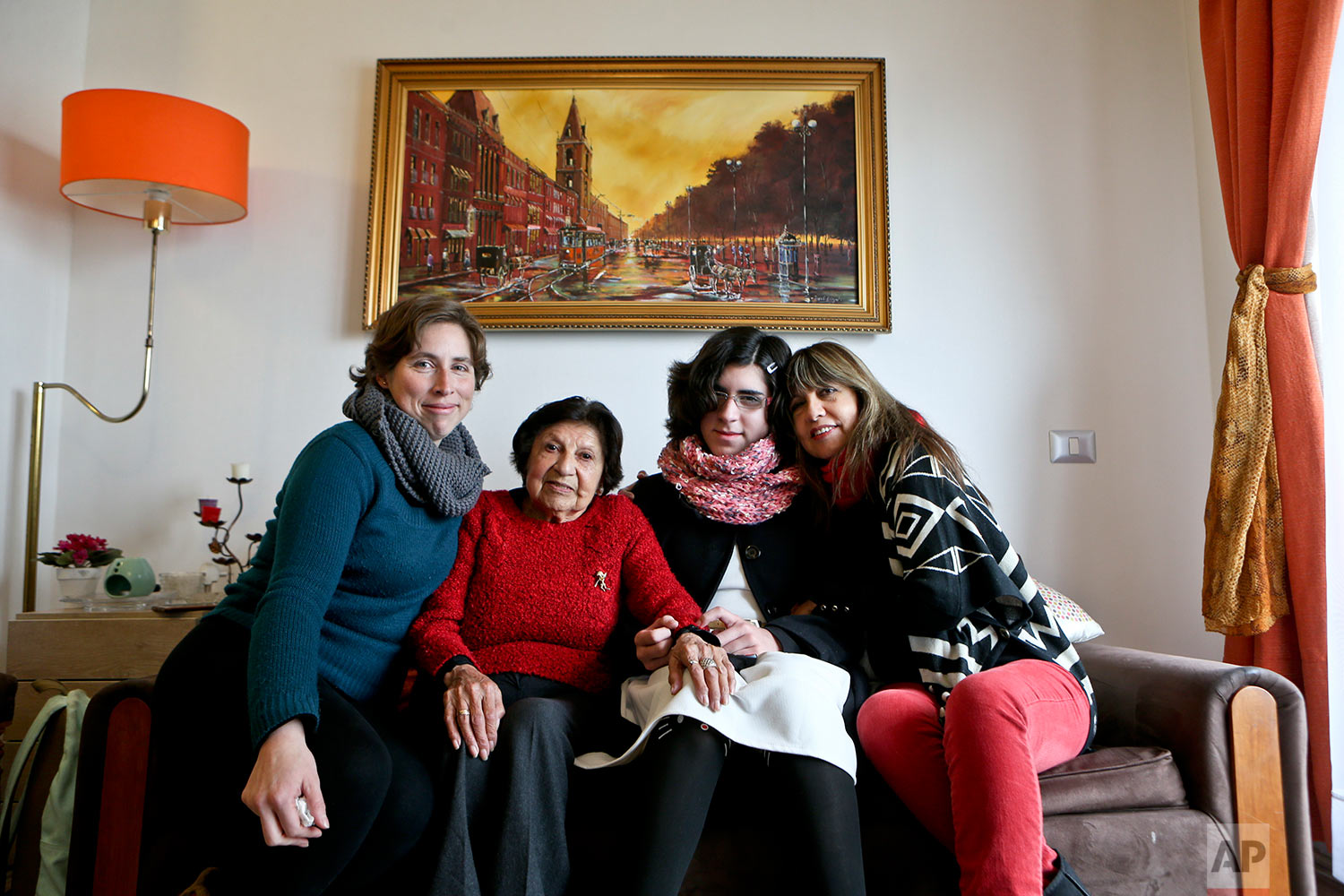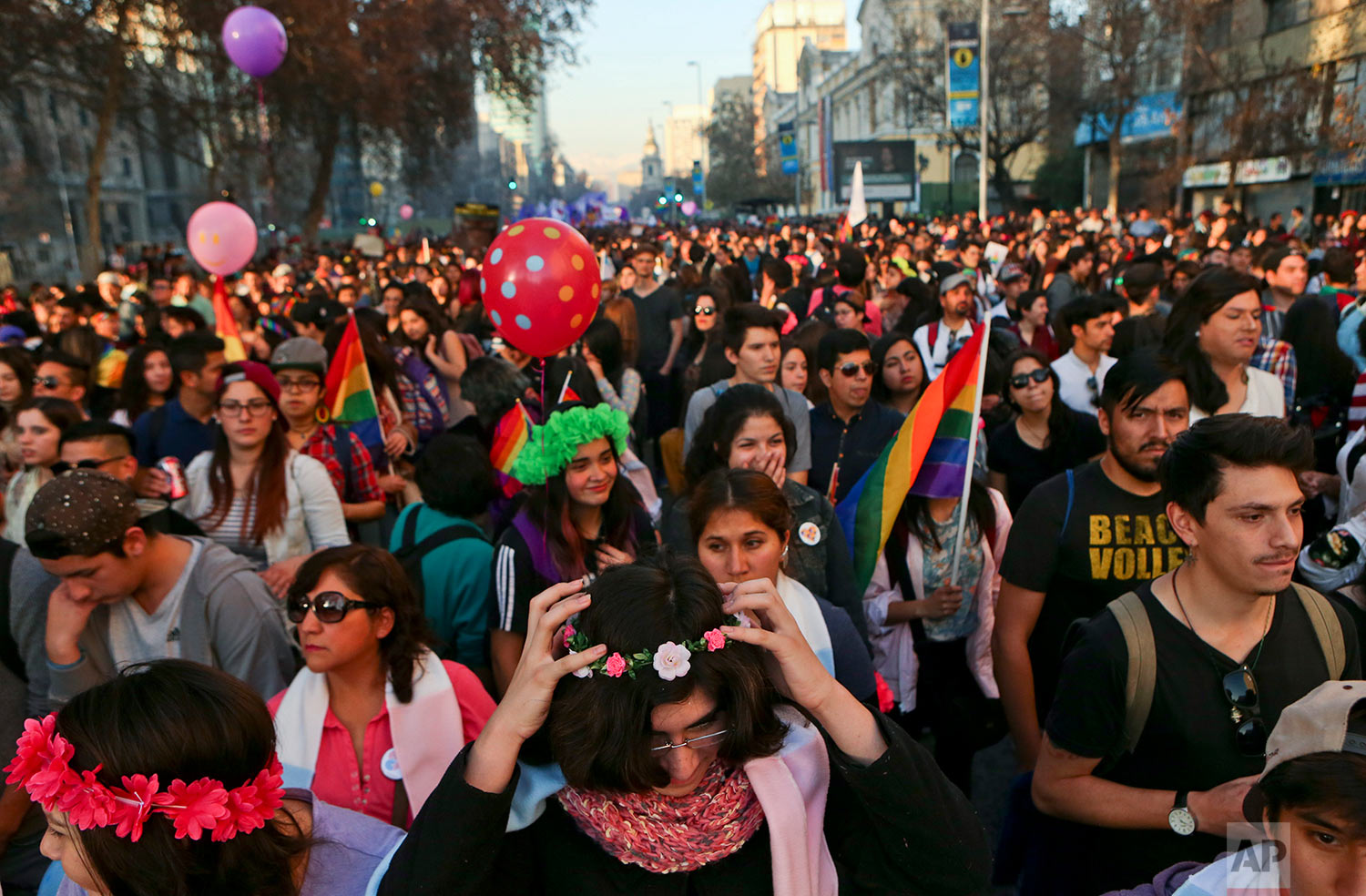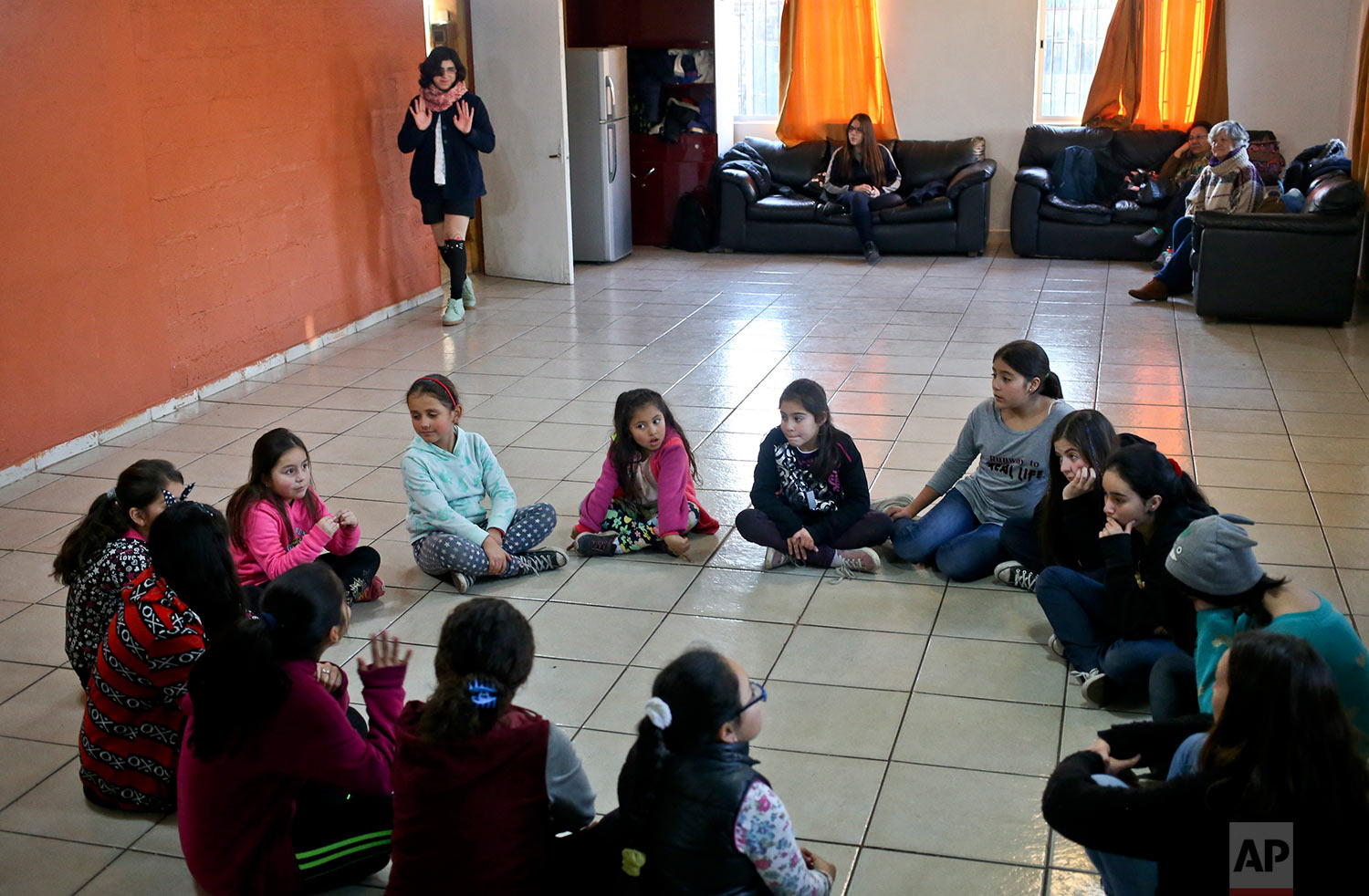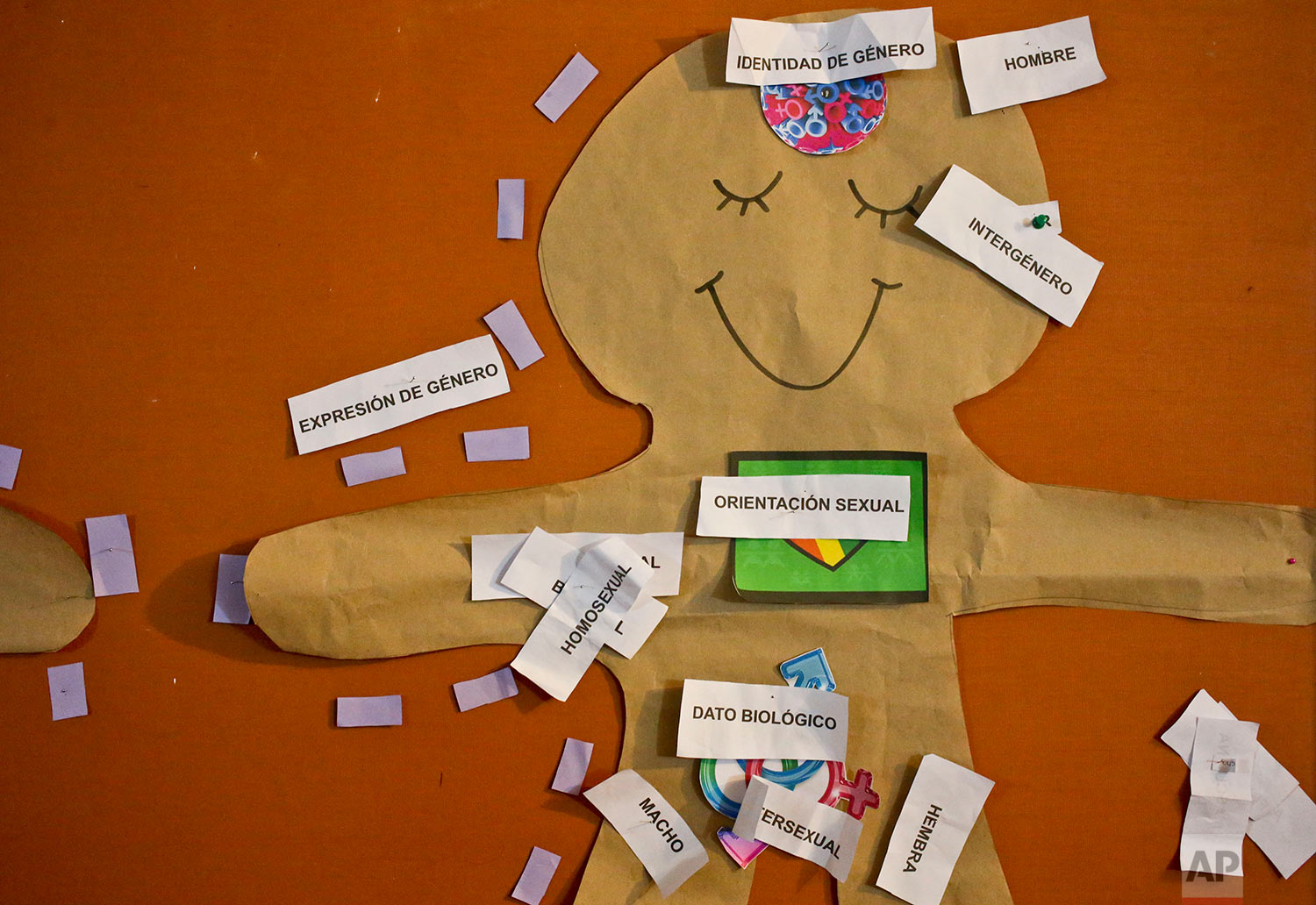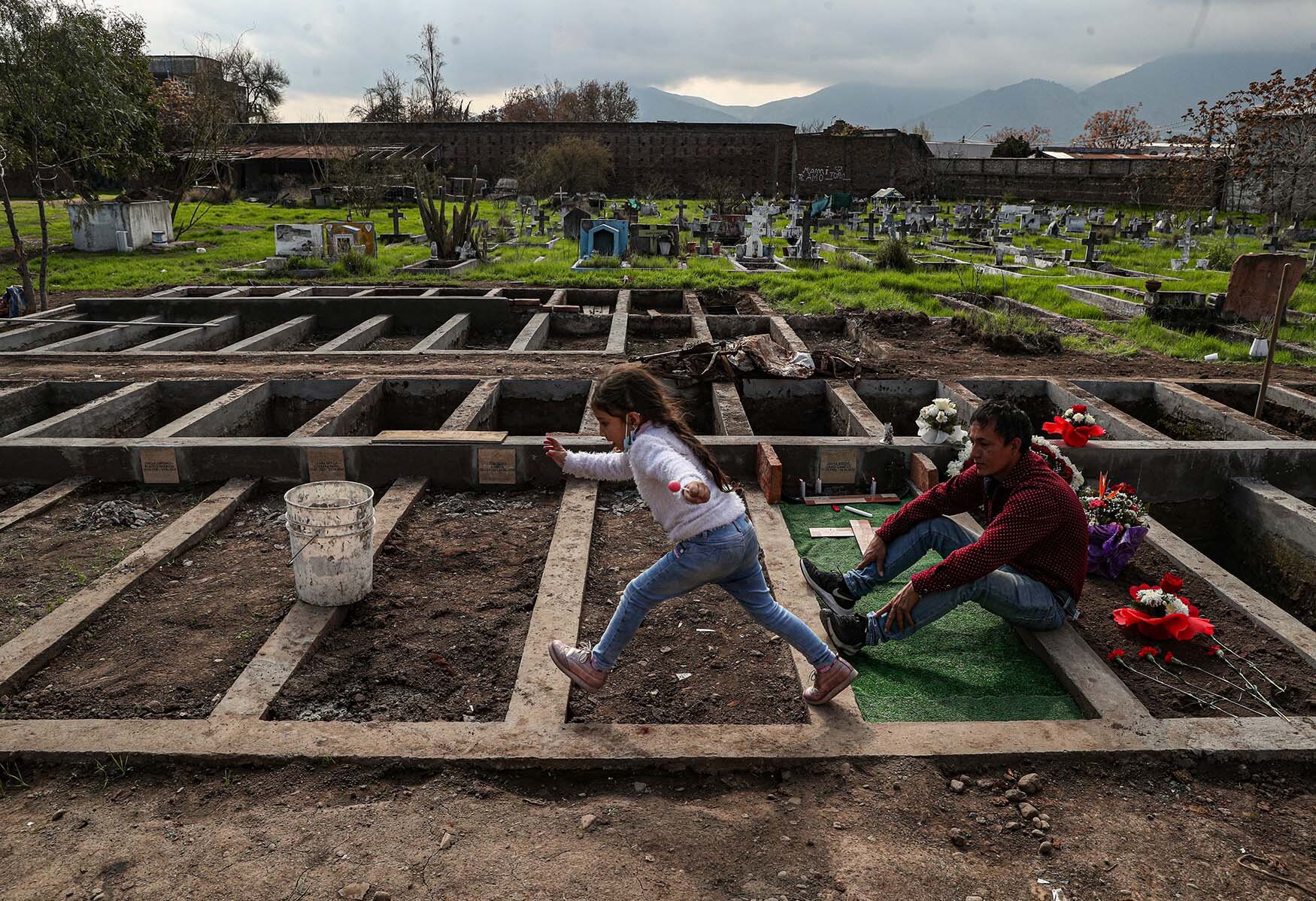Chile families fight for acceptance of transgender children

Monica Flores was returning from a holiday abroad when Chilean police stopped her for questions at the airport. They were bothered that their records didn’t match: She had left the country with a son and returned with a daughter.
Flores had to explain that her 6-year-old registered as a boy identifies as a girl.
“It was a distressing moment. I realized that it was urgent that the different institutions of our country could be trained about trans issues to avoid having children undergo these questionings,” Flores said.
The uncomfortable incident two years ago, led Flores and her husband to launch a legal battle for the rights of their daughter — a struggle that has encouraged the families of other trans children to demand greater acceptance and that has fed the broader debate about gender rights in a country so socially conservative that it legalized divorce just 13 years ago.
The family’s efforts led to a landmark decision last year when a judge ordered officials at the civil registry to change the child’s name and gender on her birth certificate — a first for someone so young in Chile.
“This girl’s case touched my heart. I couldn’t allow her to continue living in the wrong body before society,” Judge Luis Fernandez, who ruled in favor of the child, told the newspaper La Tercera in the only interview that he has granted about the case.
Fernandez’s ruling so outraged conservative groups that they filed a criminal complaint against the judge. It was thrown out.
At least five other, similar requests for gender registration changes have been filed for minors since Fernandez’s decision.
The center-left government itself has been pushing an array of measures for gender rights, ranging from decriminalizing some abortions under legislation upheld Monday by the Constitutional Court to demanding greater acceptance for transgender people in general and children in particular.
The Education Ministry issued a directive in May urging schools nationwide to protect the sexual orientation and gender identity of student. The anti-bullying measure urges schools to identify the trans children by their preferred gender. The country’s Catholic schools association has promised to resist the measure.
More broadly, the government is backing a bill that would give adults the right to change the official records of their gender, though the measure has stalled in Congress, facing challenges from the Roman Catholic church and other traditional forces.
Even with the measure still in limbo, a Santiago appellate court in June accepted a transgender adult’s right to change the registry. It said “every person has the right to the free development of their personality in accordance with their own determination of gender.”
The bill before congress initially would have covered children like Flores’ daughter, though that was stripped out of the bill after meeting even stiffer resistance. Some doubts came from Chile’s association of endocrinologists, which expressed support for letting adults make such legal changes, but said it was premature to do so in childhood, when the body and brain are still developing and when gender identity can sometimes shift with puberty.
Chile in 2012 adopted a law to bar discrimination and hate crimes following the beating death of a gay youth that shocked the country. And in 2015 it recognized civil unions for same-sex couples.
Nearly all of those moves have been met with resistance from conservative lawmakers and Catholic leaders who argue that such moves undermine families and society.
Flores’ daughter — she asked that the girl be called Luna — is still too young to worry about details of the debate.
On a recent day, she fixed a green scarf over her silky black hair and wore a flowered skirt over fuchsia tight pants and a dark vest. She always wanted to be a princess or a fairy when she chose cartoon characters on TV. Soon after she learned how to talk, she asked her mother why she had named her like a boy, if she wanted to be a girl.
Flores and her husband say they’re convinced they’ve done right by their young daughter.
“We sought justice because our daughter had endured so much discrimination and uncomfortable moments whenever we had to deal with routine matters, paperwork or visits to the doctor,” said her father, Gonzalo Araya.
“We’ve tried to look for information to help her be happy.”
The increasing acceptance has led other transgender children to step out of the shadows, backed by their parents. Several took part in last month’s Gay Pride parade in the Chilean capital.
Selenna, an 8-year-old with dark brown hair pulled back into a ponytail, brimmed with joy as she jumped around and played with other children.
Her mother, Evelyn Silva, said she struggled to find a school that would accept a girl whose birth certificate still lists her as a boy, though she finally succeeded.
Selenna, meanwhile, said she never liked celebrating her birthday because she would always get toy cars.
“Maybe they didn’t notice it,” said Selenna. “But I was always (a girl).”
Text from the AP news story, Chile families fight for acceptance of transgender children, by Eva Vergara.
Photos by Esteban Felix

